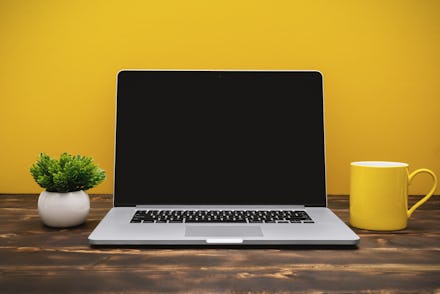The psychological toll of canceling offices forever

Most of us non-essential types have surrendered to the idea that we will be working at home for a while. But surrendering is not the same as acceptance, and frankly, I don’t know how long I can thrive in my office of uno. So for better or worse, some major corporations are already making decisions that may last longer than this current crisis. Both Facebook and Google told employees that they could work remotely until 2021, and Twitter announced recently that it will let its employees work from home forever. As these global giants embrace extended work from home options, some of us are starting to wonder if office culture is canceled forever and how working from home might affect our mental health.
“Working from home is highly likely to increase the experience of loneliness for many people,” says Gail Saltz, associate professor of psychiatry at the NY Presbyterian Hospital Weill-Cornell School of medicine and host of the “Personology” podcast. “Many people live alone, and work equals their social circle and ability to socially be and bond with others.” Before coronavirus, Saltz tells me, loneliness was already a pandemic health concern.
I have always had a love-hate relationship with working from home.
This stay-at-home experience could exacerbate some of those preexisting conditions and lead to what some are calling a “social recession.” Unfortunately, that could be a hard consequence to bear. Loneliness, as Saltz explains, can lead to depression and anxiety. We hear these mental health terms so often that it’s easy to overlook the very real impact they have on people. Studies suggest that social isolation can increase the risk of death by up to 26%, and that was before the virus.
But how an individual responds psychologically to moving out of the office and into some nook of their home isn’t just based on their pre-COVID-19 mental health status. Emotional wellbeing is more nuanced than that, and our behavior plays a giant role in how psychologically healthy we feel. The good news in that is that we all have some control over whether working from home feels like a nest or a prison. “How healthy working from home will be for someone's mental health will depend on a variety of factors,” says Lisa Orbé-Austin, New York-based psychologist and career coach.
The factors that play into how healthy a person’s work from home space feels to them include their preferences for social interaction during their work day, their ability to set up their environment in a way that works for them, and how good they are at creating work-life balance. Orbé-Austin asserts that the choices we make about how to set up our spaces and use our time and energy can make a big difference.
“Work relationships can provide a lot of companionship and camaraderie in ways that people don't realize."
The problem is that a lot of folks, particularly those who live in small apartments in big cities and those who don’t have the money for an expansive home office, won’t have a lot of wiggle room when it comes to space, so they will be more limited in their choices. To be clear, privilege and location, two already intersecting domains, will inevitably play a role in an individual’s experience of working from home.
There are also a lot of professional variables that no one can control right now that can be contributing factors to emotional wellbeing. Part of staying mentally healthy, for a lot of people, includes the professional satisfaction that we get from working as part of a team, so distance can make work less satisfying. “Work relationships can provide a lot of companionship and camaraderie in ways that people don't realize,” says Orbé-Austin. “There are certain industries where working from home is not optimal and you can't fully do your best work.
It will also affect how concepts of ‘face time’ changes advancement and team cohesion. A lot of people are reporting that although they are seeing people more often through video conferencing, they are still feeling lonely.” It’s hard to feel like you’re part of a team when you’re alone in your apartment, and that may be really difficult, and upsetting, for people who’s professional lives rely on establishing rapport or networking.
How we feel about being out of the office could also evolve over time. The comforting thing about working at home right now, Saltz says, is that it may feel safer than being in the office. But it’s also only been about two months since most of us went into lockdown, she explains. “As fear dissipates over time, the lonely feelings are more likely to present. Right now, no one is in the office so there is nothing to actively miss. But once that changes, people stuck not at home will likely feel even lonelier.”
But it’s kind of cozy to make spreadsheets in your slippers, no? Unfortunately, once the novelty of working in our bathrobes wears off, Saltz fears that the end of office culture may not be a reason to rejoice. What may feel okay and safe to us now may feel claustrophobic, limiting, and upsetting later, so we should be prepared to evolve emotionally, because we may not be able to choose our own best case scenario.
I have always had a love-hate relationship with working from home. My home is extremely cozy; I have to acknowledge my privilege in that way. But I also thrive on the dynamic interplay that only comes with collaboration, and while the comforts of home are nice to have, I am missing the sense of having a shared experience. It’s lonely, but I'm trying to adapt — not to the loneliness, but to new ways of reaching out. And just as we've had to cope with ways office life has made us uncomfortable in some way, we'll calibrate if we need to.